While we are heading towards a more digitized world, safety and security are becoming a big concern. Almost all software are now developed keeping user privacy in mind. Although, there are some who are taking advantage of this ever digitizing world. Stealing of data and other private information has become a common issue.
When it comes to file safety, people generally show more faith in offline converters than online converters because offline converters are not connected to the internet and therefore cannot leak your data to the internet world.
The evergoing debate on the safety of online converters has now reached its peak. With hundreds of online converters available in the market, users are overwhelmed with the choices they have. However, not all of these online converters are as safe as they claim to be. Hence, one must do the appropriate research before using such converters. Here, we have done that research for you. In this blog, we will be talking about one such converter called the Sejda PDF. Let’s have a look at what Sejda PDF is all about and its safety. So let’s get started without further ado.
About Sejda PDF: Sejda is a free online PDF editor where you can easily convert your jpg or png to pdf. It claims to be absolutely safe because all uploaded files are wiped from the server after two hours. Free service is provided only for documents up to 30 pages or 5 Mb and 3 tasks per hour. Also, Sejda has a user-friendly interface and its single menu bar makes it easy to find all the editing options that are necessary for adding images, text, links, & signatures.
Safety of Sejda PDF: Files are safely uploaded over an encrypted connection. Files stay secure. After processing, they are permanently deleted from the servers after two hours. However, the company makes no mention of the kind of encryption that it uses or any other security measure. Among the user information collected by the company includes:
**_Account and Profile Information: _**It collects information about you and your company as you register for an account or make purchases. The information it collects includes:
- Contact information such as email address
- Billing Information such as name, credit card details, billing address and VAT number.
User files: It stores the files that you are processing for two hours giving you enough time to download and share them.
Sejda uses technical measures to secure your data. Data exchanged with the website is transmitted over SSL.
Sejda says that “While we implement safeguards designed to protect your information, no security system is impenetrable and due to the inherent nature of the Internet, we cannot guarantee that data, during transmission through the Internet or while stored on our systems or otherwise in our care, is absolutely safe from intrusion by others.”
Therefore, while Sejda may be all about safety, it cannot stop hackers to exploit your data. Let’s first have a look at how to convert PDF to JPG using Sejda PDF converter before looking at how hackers might be able to access your data.
How to Convert PDF to JPG using Sejda PDF?
-
Open Sejda and click on “Upload PDF files”.
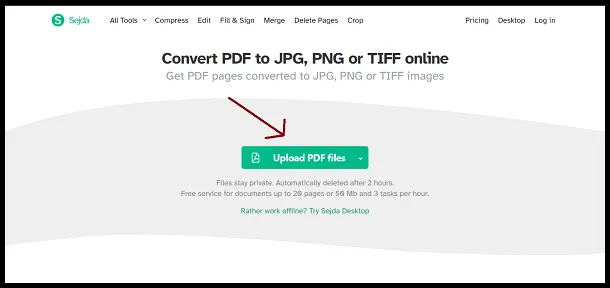
-
You can also see the options in the drop-down menu, from where you want to select the file.
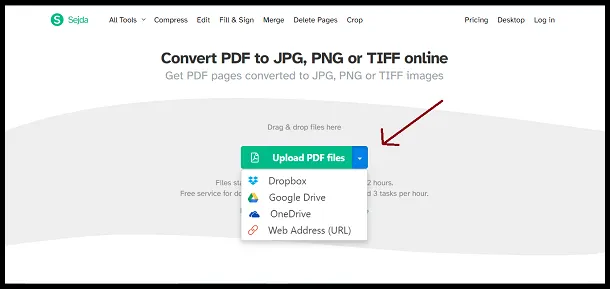
-
Select the PDF that you want to convert.
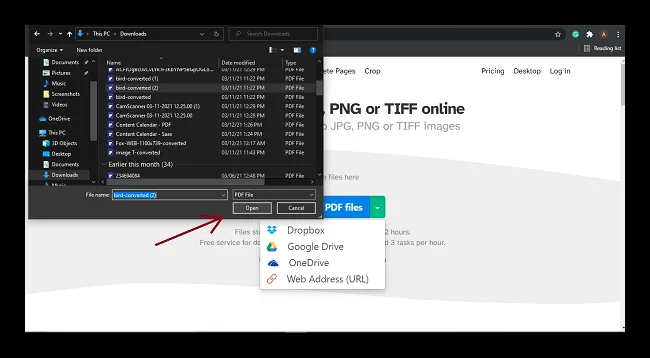
-
Select the output image resolution.
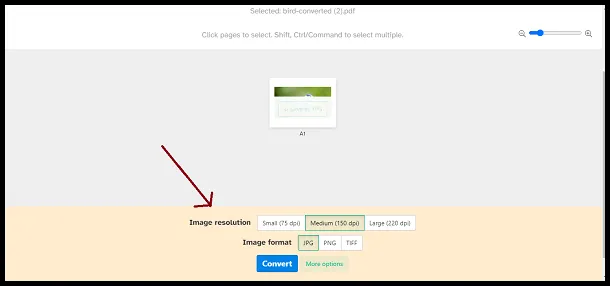
-
Choose the output image format(JPG/PNG/TIFF)
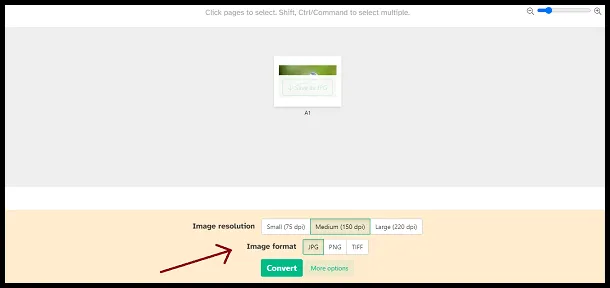
-
Finally, download the file.
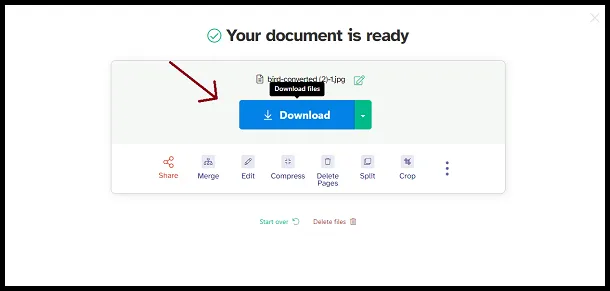
Now that we know how to convert our PDF to JPG using Sejda, let’s look at how hackers might be able to exploit it. While converting or processing files in Sejda, a network call is being made to store files on the server.
Files server is connected to the internet and configured that the users are not able to access the files through the local network. Write the means file is saved to their server, and data can get compromised if their server is hacked. Therefore, if some hacker manages to take control of the server and compromise it, your entire data can be leaked in a breach.
A probable solution to this is to use serverless converters. A serverless converter is one that converts your files using a browser and without depending on a server. One such PDF editor and converter is Safepdfkit.
Safepdfkit is a risk-free converter as no data about the PDF is transferred to the server. The file that you have shared with Safepdfkit will not transfer any of your data to the server. Also, it is an easy-to-use and secure service. Only the necessary information is collected for achieving a safe experience and customizing your needs. The SSL encryption and the serverless interaction provides the guarantee to secure your data 100%. This whole functionality is implemented using JS libraries on the browser. Just a few years ago, such converters would not have been possible but thanks to advancements in technology, it now is.
Safepdfkit makes use of various advanced JavaScript libraries to achieve this. Libraries are used to create a web page using UI components, math functions, language utilities, etc. It provides a lot of functionalities. One of the essential JavaScript libraries that Safepdfkit uses is:
PDF-LIB: It is a JavaScript library specially designed to efficiently and safely handle PDF files. It allows users to create PDF documents from scratch, or modify existing PDF documents. Written in TypeScript and compiled to pure JavaScript with no native dependencies, it works smooth as butter.
Not only can PDF-LIB create and modify PDFs but also can add, insert, and remove pages. It can split a single PDF into separate ones or merge multiple PDFs into a single document. What’s so special about this library is that it works in any JavaScript runtime, including browsers, Node, Deno, and even React Native. The ability to work in browsers removes the dependency for servers ensuring safe serverless conversions. All in all, it is a very powerful library and is aptly used by Safepdfkit.
In conclusion, serverless converters are anytime a better choice over server-dependent converters no matter how safe the latter claims to be. We hope this blog somewhere cleared your queries regarding the safety of such online converters.







